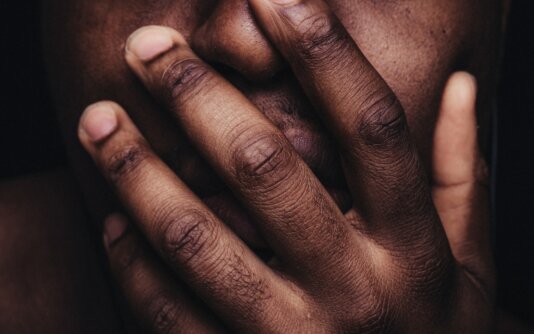https://thailandtv.news/wp-content/cache/breeze-minification/js/breeze_30ae494f19b01014d7121a501682e0ab.js
https://thailandtv.news/wp-content/cache/breeze-minification/js/breeze_9d41a3cf8e438fb98b29e3ebe8ee8718.js
https://thailandtv.news/wp-content/cache/breeze-minification/js/breeze_35cc81a9fcb71870d166eeb822254873.js
https://thailandtv.news/wp-content/cache/breeze-minification/js/breeze_9ba4de6255851cae008954cd5373571d.js
https://thailandtv.news/wp-content/cache/breeze-minification/js/breeze_21325cb6632084516667069432f7dadb.js
https://thailandtv.news/wp-content/cache/breeze-minification/js/breeze_110e06930c2043d5439adeb9999f07f5.js
Despite laws, Child Prostitution Thrives in Thailand
02.Sep
Popular among tourists for its vibrant nightlife and luxurious beaches, Thailand’s tourism industry is picking up after a dip during the pandemic. But the happy economic boost comes with a shadow: the return of Thailand’s infamous sex tourism industry, which necessitates and supports child sex trafficking.
A 2014 report by the Joint United Nations Programme on HIV/AIDS (UNAIDS) notes Thailand accommodates over 123,530 individuals engaged in sex work, with nearly 40 per cent of them being children or minors under 18.
Girls and boys, many impoverished and some as young as eight years old, find themselves coerced into the prostitution industry across Thailand, where locals exploit them for money provided by pedophiles and foreign sex tourists.
Child prostitution is more lucrative than the adult sex industry, and with Thailand being the most unequal country globally regarding its income and wealth gap, some Thai families resort to prostituting their children to make ends meet.
The sex industry’s contribution to the country’s GDP is uncertain due to its clandestine nature. In 2015, the black market research firm Havocscope approximated its worth at $6.4 billion annually, equivalent to around 1.5 per cent of Thailand’s GDP that year.
According to the 2017 Safe Child Report, traffickers in Thailand primarily target children hailing from impoverished rural backgrounds and minority ethnic regions. Children are particularly vulnerable in Pattaya, Phuket, and northern Thailand, with street children the primary targets for child pornography. In Pattaya in 2015, 90 per cent of the 200 street children surveyed were victims of such abuse.
Although sex work is legally prohibited in Thailand, its laws are ambiguous and loosely enforced. Sexual services, including those involving minors, are readily accessible in prominent red-light districts such as Patpong in Bangkok and massage parlours, go-go bars, or sex-focussed karaoke bars.
Several NGOs in Thailand have started tackling child trafficking. Their work involves tracing thousands of missing or trafficked children and working to pull them out of the forced and exploited world of sex work. One such local organisation was started by Boom Mosby, a prominent advocate for child victims of sexual abuse, in 2011. The HUG Project initiative in Chiang Mai collaborates with law enforcement agencies and the government to prevent child sex trafficking. So far, the project has assisted 141 child victims of sex or human trafficking and held 942 training workshops for law enforcement.
These NGOs actively raise awareness and support vulnerable communities through educational initiatives, survivor rehabilitation, aftercare services, and collaboration with Thai policymakers.
A blend of government-led protective initiatives and collaborative endeavours bolsters efforts to rehabilitate rescued children. NGOs also use creative means like social media to disseminate awareness and secure funding. They have introduced innovative apps such as PROTECT-U, which informs victims of their rights and spotlights protection shelters while also encouraging to report trafficking.
Image by 4601460.
Call to Action
Join the fight against human trafficking

Support now
Read more…
We use cookies on our website to give you the most relevant experience by remembering your preferences and repeat visits. By clicking “Accept”, you consent to the use of ALL the cookies.
Manage consent
https://thailandtv.news/wp-content/cache/breeze-minification/js/breeze_fc8f9465a874f9c1cf57666a96e48d80.js
https://thailandtv.news/wp-content/cache/breeze-minification/js/breeze_c610b3ebab3ce54f5450cef2cdabc14a.js
https://thailandtv.news/wp-content/cache/breeze-minification/js/breeze_efc27e253fae1b7b891fb5a40e687768.js
https://thailandtv.news/wp-content/cache/breeze-minification/js/breeze_917602d642f84a211838f0c1757c4dc1.js
https://thailandtv.news/wp-content/cache/breeze-minification/js/breeze_8f6776348bfd2a0b93146865a8abc6fb.js
https://thailandtv.news/wp-content/cache/breeze-minification/js/breeze_7f129d23ccac3152a29e14f330c41262.js
https://thailandtv.news/wp-content/cache/breeze-minification/js/breeze_1314084962f712ec19d2dc41cffd6db8.js
https://thailandtv.news/wp-content/cache/breeze-minification/js/breeze_47964be3087c6a5b5a8d34ab4f167b14.js
https://thailandtv.news/wp-content/cache/breeze-minification/js/breeze_8f4cdfeb86cf22f23ae24e2b4d7a464e.js
https://thailandtv.news/wp-content/cache/breeze-minification/js/breeze_ea00a7bf639ea5197a80d72da93f78a9.js
https://thailandtv.news/wp-content/cache/breeze-minification/js/breeze_fa70a289b020af46820a4155f41b515a.js
https://thailandtv.news/wp-content/cache/breeze-minification/js/breeze_f1274084cb8b2690d54aeeb3bbe5cc3e.js
https://thailandtv.news/wp-content/cache/breeze-minification/js/breeze_1b07030cf1ed96de4339ee5948afbbc1.js
https://thailandtv.news/wp-content/cache/breeze-minification/js/breeze_ead96fd0581bc73a3d1138a01848f412.js
https://thailandtv.news/wp-content/cache/breeze-minification/js/breeze_ec0187677793456f98473f49d9e9b95f.js
https://thailandtv.news/wp-content/cache/breeze-minification/js/breeze_52a33f31f3dc7365a70f8a619eee581e.js
https://thailandtv.news/wp-content/cache/breeze-minification/js/breeze_3d782c2fced317eebe67174fb21a4f16.js
https://thailandtv.news/wp-content/cache/breeze-minification/js/breeze_67b66beefe423317068966d0474170f9.js
https://thailandtv.news/wp-content/cache/breeze-minification/js/breeze_0f53e5edc07f2dfa276cbeaf834f2313.js
https://thailandtv.news/wp-content/cache/breeze-minification/js/breeze_33bec73c4f183c5a8b2f62a9e45e01bd.js
https://thailandtv.news/wp-content/cache/breeze-minification/js/breeze_3be1cb843622dab49c1d72edfc9bd17e.js
https://thailandtv.news/wp-content/cache/breeze-minification/js/breeze_55d27faa9648d7f3d30df3f791453457.js
https://thailandtv.news/wp-content/cache/breeze-minification/js/breeze_3a9b5e32fac9388b2cb40a4f4fda5b3d.js





